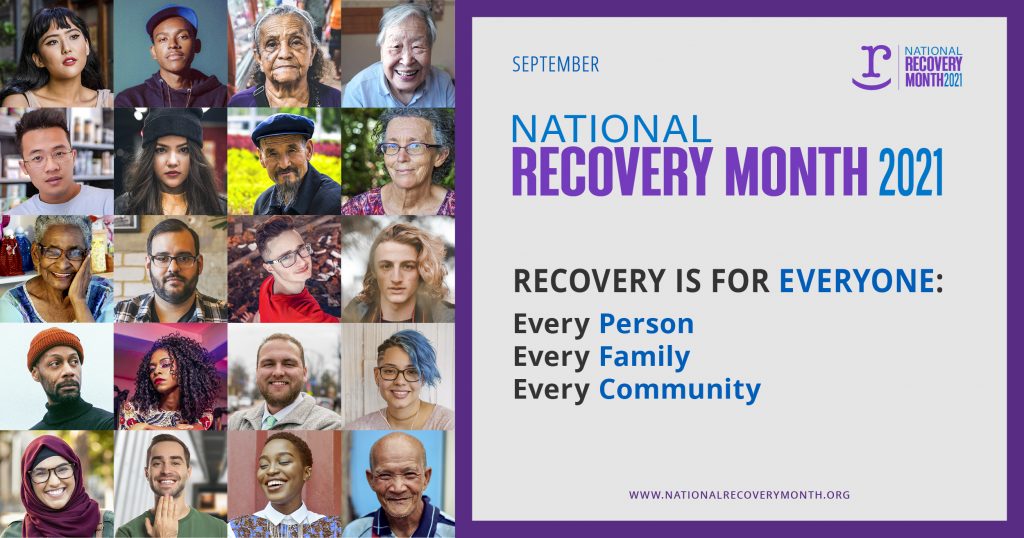It’s National Recovery Month. Each September we celebrate the successes of those in recovery from addiction and recognize the individuals and organizations committed to supporting them. The month is meant to send the message that recovery is possible and those struggling with a substance use disorder are not alone.
But, understandably, for parents who suspect their child may be abusing drugs or alcohol, this message of hope may be overshadowed by their fears for their child’s health and safety and their concerns about how alcohol or drug use will impact their life going forward.
Certainly, they are right to be worried. Early substance use puts adolescents at increased risk for long-term addiction, engaging in impulsive or dangerous behaviors, school failure, developing mental health problems, overdose and suicide. Furthermore, when substance use disorders occur in young people, they affect key developmental and social transitions, and they can interfere with normal brain maturation.
Even when they seek out treatment, it is not a guarantee for sustained sobriety. Those in the drug and alcohol treatment industry estimate a success rate of about 30%. Yet, there is little data about how patients do the year after leaving rehab and almost no information about them 2-5 years post treatment.

We know the road to recovery is long, hard and different for each individual. But the news is not all bad. According to the National Institute on Drug abuse, “When substance use disorders are identified and treated in adolescence—especially if they are mild or moderate—they frequently give way to abstinence from drugs with no further problems.”
Experts agree, family support combined with early intervention and access to quality, evidence-based treatment, as well as robust aftercare, are an adolescent’s best chance for long-term recovery.
Elements for Success
According to “Principles of Adolescent Substance Use Disorder Treatment: A Research-Based Guide,” produced by the National Institute of Health, cases where treatment is successful and recovery is sustained tend to have certain elements in common. Some of these include:
- Early evaluation and intervention. Sometimes it is difficult for parents to see or take substance use seriously enough. It’s important to stay vigilant and take action even if you aren’t sure that your child does not appear to have a problem.
- Access to comprehensive services to address the adolescent’s substance abuse issue as well as any medical, mental health, familial or education problems. Keep in mind, most people with a substance use disorder are also struggling with an underlying mental health condition or coping with some kind of trauma. It’s almost impossible to successfully treat one without treating the other.
- Family involvement. As the parent, you have much greater influence than you think over what your child does. Your support and the example you set during treatment and recovery can have a significant impact.
- Buy-in. Help your child recognize the value of getting treatment and encourage them to fully engage with the process.
- Qualified and experienced mental health professionals and treatment providers. Ask your physician for referrals and check out NIH’s Treatment Referral Resources to get started. When considering rehab, look for the Commission on Accreditation of Rehabilitation Facilities (CARF) accreditation.
- Tailored treatment to the unique needs of the adolescent. Psychological development, gender, relations with family and peers, how well they are doing in school, the cultural and ethnic factors, and any special physical or behavioral issues should be considered.
- The treatment program is long enough and includes quality, continued aftercare.
- A community that is supportive of recovery. Consider that a major trigger for relapse is going back to old routines and hanging out with peers who are using substances. Instead, work with your adolescent to get involved in activities or join organizations that will introduce them to new friends.
There is no magic formula for overcoming an addiction to drugs or alcohol. Yet, sustained sobriety is achievable for anyone who is committed to making change – with the appropriate support. There may be stumbles along the way, but count each day of your child’s recovery as a success.
To have your child evaluated for a substance use disorder or to talk about treatment, contact me at (303) 542-0180.

